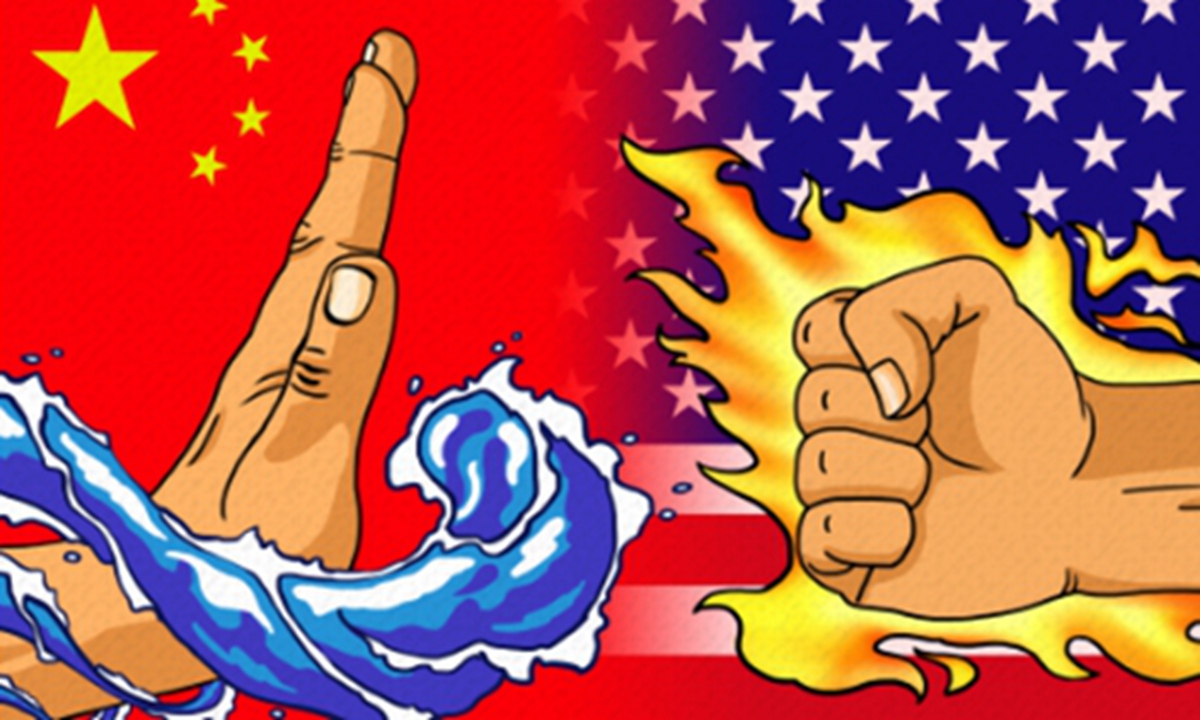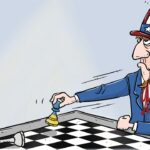There have been debates of whether China and the US have entered a new cold war, and there has been much hype of a potential hot war between the two major powers. Is there a real risk that bilateral relations will descend into war? During the Boao Forum for Asia in South China’s Hainan Province recently, China-US relations were high on the agenda. Global Times (GT) reporter Wang Wenwen interviewed Graham Allison (Allison) on the sidelines of the forum. Allison is author of Destined for War: Can America and China Escape Thucydides’s Trap?and the Douglas Dillon Professor of Government at the Harvard Kennedy School.
GT: Former US secretary of state and national security advisor Henry Kissinger said recently that a second Cold War between China and the US would be even more dangerous than the first. What do you think? How far are China and the US from a new cold war and how to avoid it?
Allison: The reason why there will not be a cold war between the US and China, simply a repeat of the Cold War between the US and the Soviet Union, is that both China and the US are backbones of the global economy. Therefore, any effort to create a new economic iron curtain and force other countries to choose this side or that side will not work. Even though some Americans may write a paper, saying this is what we aspire to, it’s going to happen, this is not realistic.
Secondly, China and the US are so entangled in so many different ways that most of the talk about so-called deglobalization or divorce is simply not feasible. I can’t imagine how the financial system could be unravelled. In the past year of so-called decoupling, trade between the US and China reached the highest level ever. So the gap between the narrative and the numbers is quite broad.
The next reason is that in the 21st century world, every nation faces challenges that they cannot successfully cope with by themselves without the cooperation of other parties. So in preventing war, for example, some incident in Taiwan that one party reacts to another and then miscalculations and misjudgments and at the end of this process, the US and China at war, and that war escalates to nuclear war. At the end of that war, they’re both completely done.
So my survival requires enough cooperation with you to prevent being dragged into a war, an unintended war that neither wants. Each of us clearly understands that if we really had a war, a full-scale war, it would be suicide. So neither government is suicidal, and since we would never choose a war, we have to be cautious about choices that could trigger a spiral that ends in a war.
Meanwhile, how to survive in an enclosed biosphere in which each of our greenhouse gas emissions can make it so disrupted that neither of us can live in it. In the 20th century, nobody ever knew that. But today we know that. We have to find a way to cooperate in constraining greenhouse gases. Again, for my survival. It’s also for you and for the world. So survival is very powerful motivator.

Graham Allison Photo: Courtesy of Allison
GT: We have seen continuous US suppression of China, from the trade war to Huawei and now TikTok. Regarding China, is there still room for rational voices in the US?
Allison: If you listen to the hearings in Congress, you would doubt it. But those are political theater. And most of the people talking don’t know very much what they’re talking about. China has become this looming specter and unfortunately is increasingly perceived by many Americans as our enemy, which I think is a mistake. It’s a fierce rival. That’s what I say, its ambitions and aspirations are different from ours. But casting it as an enemy in a war seems to me misleading and dangerous.
In a fierce rivalry, what can I do to you? And what can you do to me? Essentially, the answer is anything we can get away with. Trump imposed tariffs on China, which then led China to respond with equivalent tariffs. If you look at the net of that, both parties lost, but probably the US lost more. What was achieved by that? Not very much. On the other hand, if you look at the ban on export of advanced semiconductors and IP and equipment for producing them that the US has organized, that will have a big impact on China.
GT: We constantly hear voices from the US side hyping about the time frame of a war between China and the US over the Taiwan question. How likely is the risk of such a war?
Allison: The reason why President Biden or National Security Adviser Sullivan or Chairman of the Joint Chiefs of Staff Milley, all the people have talked about war over Taiwan is not because they want a war. If there’s a war with China, it could destroy everything. If anyone who came to them and said, were you proposing a war with China? They would say you’re out of your mind. We are not going to have a war with China. We’re also not going to have a full-scale war with Russia. For President Biden, my first job is America’s survival. If I were to have a war, I fail in my first job. So forget about it.
You cannot describe a war between China and the US that ends up for either of them better off than they would have been otherwise. You don’t have to want a war to have a war. Could some actions that the US takes or the Chinese mainland takes, or Taiwan takes or some miscalculations, misperceptions and misjudgments, which end up with a war that people would say how did this ever happen? So how to prevent a war is the right question. That’s the reason why people in the US are thinking and talking about this.
In citing timelines like 2025 or 2027, people believe, as China has said, the phase of their military modernization should be finished by 2027 and therefore this is a good time to launch an attack on Taiwan. That’s been misperceived in some of the Western press or some advocates. Similarly, people want to be provocative by writing about it. I think most of that is just noise.
Finally, I’d say that reason why we’re now entering a very dangerous period is that there will be an election in Taiwan in January next year, and the most likely victor is Lai Ching-te. He once made it clear that Taiwan is going to become an independent country. Would Chinese military force seek to prevent that? I think so. Then could the US come to Taiwan’s defense, even though it might risk war with Beijing? It could do. And if it did, where would that war end? I hope soon, but it might escalate.
Secondly, you got the dynamics of American politics, which are now fairly crazy. There’s very sharp divide between Republicans and Democrats, but there’s a bipartisan consensus that we have to be tough on China. The US and China need to get back to serious, private, candid conversations.
GT: Taiwan regional leader Tsai Ing-wen met with House Speaker Kevin McCarthy during her stopover in the US. How will this undermine cross-Straits peace? And how will it affect China-US ties?
Allison: It is worth explaining to the Chinese that in the American form of government, the president is quite different than that of China, and that the speaker of the House is a totally independent actor.
In this case for McCarthy, he would love to bury Biden. That’s the American political system. Biden’s hopes would be for this to all go away. If he calls up McCarthy and says, don’t do this, it makes McCarthy even more interested in doing it. So how much noise that will be about it is unclear. The US government has been trying to tone it down.
McCarthy would be going to visit Taiwan. And given the Pelosi precedent, it would have been almost impossible for China not to respond in some big way. That would all raise the tensions. McCarthy will try to make some theater around it. I was hoping that this will be less visible. If there’s a big noise about that, then there will be some big noise from the Chinese government. And we can have another setback from the way we did from the balloon and the politics.













